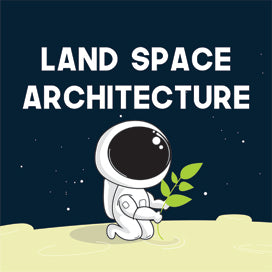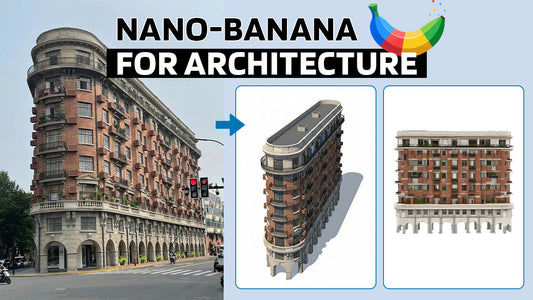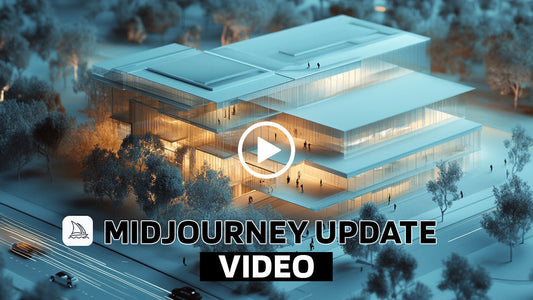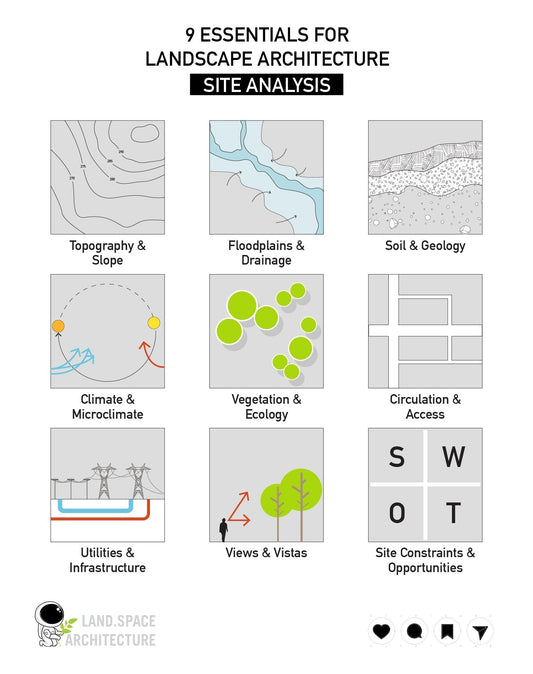🚀 Google’s Nano Banana AI: Free Tool for 3D Architecture Models
Artificial intelligence is transforming the world of architecture — and one of the latest tools making waves is Google’s Nano Banana AI. This model is built into Google AI Studio (aistudio.google.com) and is completely free to use. With just a photo — even a screenshot from Google Street View — you can generate detailed 3D architecture models in seconds.

🔍 What Is Nano Banana AI?
Nano Banana is one of Google’s image generation models available under Gemini 2.5. While it sounds playful, its abilities are powerful:
- Generate high-fidelity 3D building models from a single image.
- Support for different views such as front, side, and 45-degree angles.
- Option to style outputs as 3D-printed models, blueprints, vector drawings, or hand sketches.
- Quick processing time — most tests finish in about 13 seconds.
For architects, landscape architects, and urban designers, this is a game-changer in AI architecture workflows.


🏙️ How to Use Nano Banana AI for Architecture
- Go to Google AI Studio.
- Log in with your Gmail and select Gemini 2.5 (Nano Banana).
- Upload a photo — either from your laptop or a Google Street View screenshot.
- Paste this example prompt:
“Use the provided architectural photo as reference. Generate a high-fidelity 3D building model in the look of a 3D-printed architecture model.” - Wait a few seconds, and your 3D architecture model will be ready.
Pro tip: If you want more accuracy, upload two images — a street photo for the facade and an aerial view for the roof/top.
Input:
Output:





🖼️ What Can You Do With It?
- Generate quick architectural references when drawings aren’t available.
- Create section drawings or landscape context models.
- Export files and import into tools like SketchUp, Rhino, or Blender for rendering.
- Explore different visual styles: blueprint drawings, vector diagrams, or hand-drawn effects.
📍 Prompts
[Use the provided architectural photo as reference. Generate a high-fidelity 3D building model in the look of a “3D-printed architecture model.” Preserve the building’s massing and key texture details, lightly stylized for a game. Render with realistic, physically-based lighting and shadows. Show a 45° top-down (isometric) view to emphasize depth. Define materials clearly—reflective glass, metallic surfaces, concrete—so it reads as a high-quality, game-engine-ready render. Pure white background.]
[Use two reference images—1) street-view photo of the façade and 2) aerial/oblique photo showing roof and site. Generate a high-fidelity 3D building model in the look of a “3D-printed architecture model.” Preserve the building’s massing, proportions, fenestration, and key texture details, lightly stylized for a game. Render with physically based, realistic lighting and shadows. Show a 45° top-down (isometric) view to emphasize depth. Define materials clearly —so it reads as a realistic, high-quality, game-engine-ready render. Pure white background.]
🌟 Why Architects Should Care
Getting accurate existing building drawings is often difficult in architecture and landscape projects. Nano Banana offers a fast, free way to capture building massing and details, perfect for early concept design or urban analysis.
🎥 Learn More: Full YouTube Tutorial
I created a full walkthrough showing exactly how to use Nano Banana AI for architecture. Watch it here:
✅ Final Thoughts
Nano Banana may sound funny, but its potential in AI architecture and landscape design is serious. Free, fast, and easy to use — it’s an essential tool for anyone exploring AI in architecture.





